#the pleiades
Text
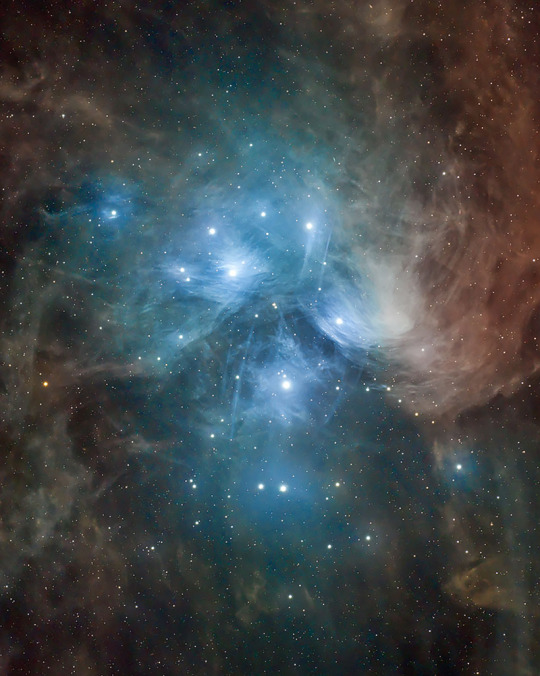
The Pleiades: Seven Sisters © Craig Stocks
#seven sisters#space#nasa#apod#the pleiades#astrophotography#stars#night sky#universe#solar system#astronomy#nebula#cosmos#planet#galaxy
2K notes
·
View notes
Text

Seven Sisters l Craig Stocks via NASA APOD
#nasa#apod#seven sisters#the pleiades#space#astrophotography#astronomy#galaxy#stars#night#planets#solar system#sky#universe
651 notes
·
View notes
Text
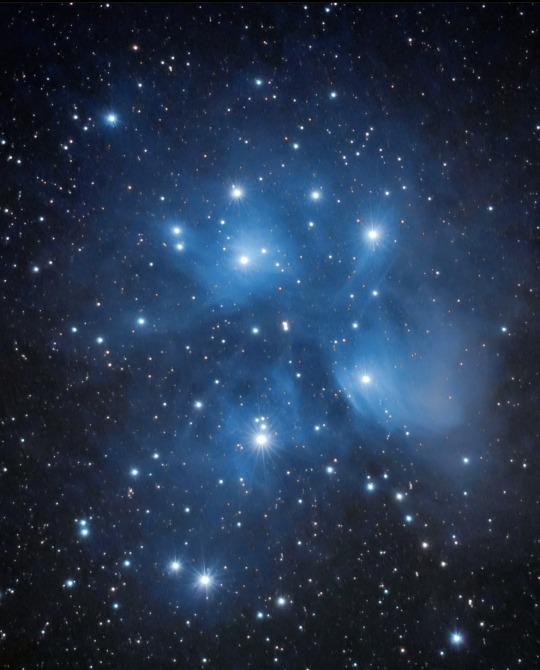
The Pleiades by Babak Tafreshi on Instagram
#stars#astrophotography#space#astronomy#outer space#Pleiades#the Pleiades#mine#open star cluster#star cluster
1K notes
·
View notes
Text
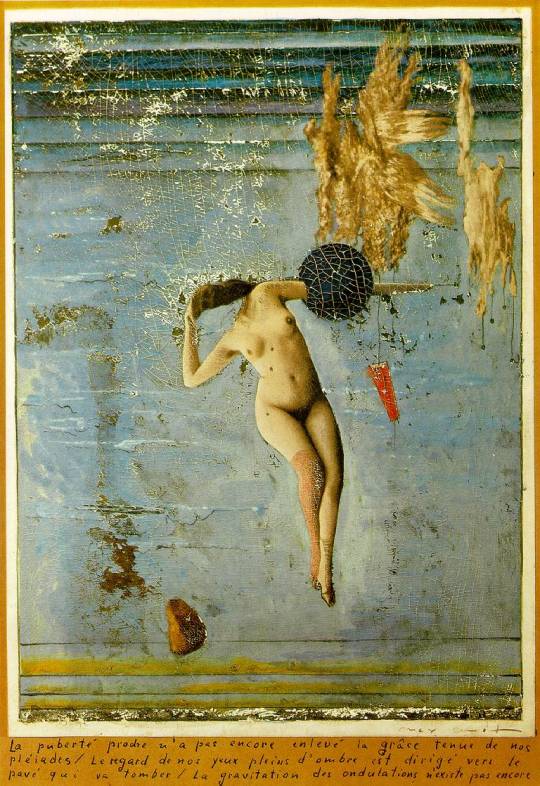
(Approaching Puberty) The Pleiades, Max Ernst, c 1920
306 notes
·
View notes
Photo

M45, Daughters of Atlas and Pleione
#Astronomy#NASA#Night#Sky#Stars#Space#Science#Universe#Cosmos#Cosmic#Solar System#The Pleiades#Nebula#Galaxy#Constellations#Constellation#Rainbow#Bright
2K notes
·
View notes
Text

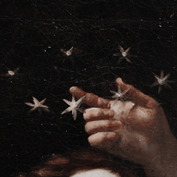


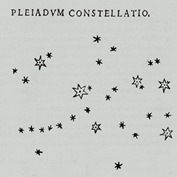
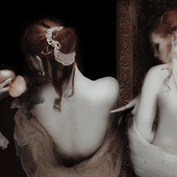



myth moodboards: the pleiades
in greek mythology, the pleiades were seven sister-nymphs, companions of artemis, the goddess of the hunt. together with their sisters, the hyades, they were called the atlantides, dodonides, or nysiades, nursemaids and teachers of the infant dionysus. the pleiades were thought to have been translated to the night sky as a cluster of stars.
requested by anon
#ended up doing one mb instead of one for each but! i remembered i should probably do actual edits to remind people i exist before i start#gearing up for ff february and everyones like wait are you still alive#the pleiades#greek mythology#mythedit#mine#*#mythmoodboard
372 notes
·
View notes
Photo
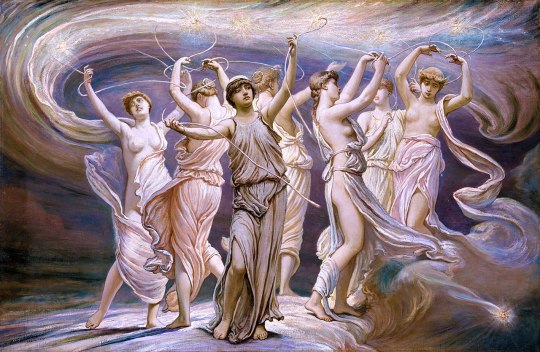
Elihu Vedder ( US 1836 - 1923 )
The Pleiades 1885
352 notes
·
View notes
Text
While long overdue on my part by weeks, this post will serve as informative to the worship of Maia. I will try my best to make it cohesive but it might end up being a patchwork.
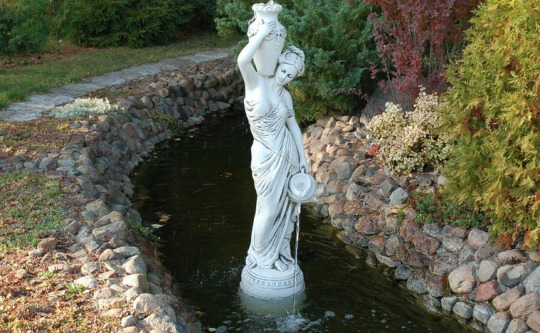
"I know the Dove best by night
blue in the sky she remains
diligently guiding us from the heavens
so none may be lost even when alone
when cared for by the herald of seasons"
-For the Night-Wandering, by me
Maia, daughter of the Titan Atlas, who shifts the heaven's axis, and Titanide sheep-nymph Pleione (Aithrê is her alt. name) who increases in number as a lady of plenty, is one of many stars making up the constellation Taurus. She is the oldest of the seven sisters and the leader of the Pleiades born in Arkadia on Mt. Kyllene where she would take up permanent residence in the caves. She is a sister to the Hyades as well. Maia is known both as a star-nymph (part of the Astrothesiai) and Oread. She has only one natural child, far-famed and widely-loved Hermes who helps her name stay relevant even now when knowledge about her is obscure.
Generally, the word maia means mother but for the goddess means Nursing Mother primarily but also Great Mother, Good Mother, Foster Mother, Female Doctor, or Dame. Her name also can be a way to address older women, grandmothers, and nurses/midwives. Maia's domain mentioned above is her most prominent aspect as a goddess of motherhood along with Leto. It led to her having a part in a myth otherwise separated from her as she became the foster mother of Kallisto's son Arkas, whom she named promptly after Zeus gave him to her.
Maia has many additional complexities with her important role to play noting her position as one of the main factors of all the seasons as the one to tell of the changes between each season (with the Pleiades). Her importance with humanity comes from this as the seven sisters tell when the earth will be renewed with life and when that renewal is at its end. She is a vegetation and earth goddess, from which she is renewal and rebirth to the earth as well as the barrenness of the earth. Maia is a maritime deity as well, without her showing up in the sky navigation by nighttime would become a challenge, something that anyone traveling in the dark would know. Through this connection she has a deep relationship with waters of oceans, springs, and rivers.
Fondly, the Seven Sisters are called Doves (Pigeons) by many writers and are the ones that attend Zeus with ambrosia. With the stars accompanying the moon, the Pleiades are called companions of Artemis. Under the epithets Atlantides, Dodonides, or Nysiades, they are nursemaids and teachers to the infant Bacchus.
The month of May earned its name from her as a 50/50 deal between her and Roman goddess Maia who's also a spring/fertility and earth goddess associated with mountains. While Rome started it first, the Greeks took it up for themselves near the end of the Hellenic era and the start of the Hellenistic era.
*On a more speculative mindset to the knowledge that Maia more than likely is a pre-Greek/older local mother goddess to the area in a similar way that Hermes is confirmed to be pre-Greek/an older local god. The older tradition and connection she has with caves in a similar manner to Hermes could speak to her being liminal and khthonic originally as they are/were seen as the point between the living and the dead and the entrance to the underworld. There is a possibility that she could of the Mycenaean goddess Preswa (dove deity), Manasa, or Diwija with Komawenteja: long-haired goddess as an epithet. Another fun little possibility is the indication that Maia is a bi-gendered deity, more than likely a part of her older iteration that survived on a largely diminished scale.
Epithets:
With deep dark eyes
Honored mother
The nurturer
She who nurtures
Great (Mighty) nurse
Of the lovely black eyes
Maia Prôtogonê - First-born
Maia Kedná - Careful, diligent, trusty cherished, dear good, valued
Maia Eratoplocamus - Lovely-haired
Maia Euplokamos - Having lovely locks
Maia Ioplokos/Ioplokamos - With violet hair / With dark locks
Maia Kuanokhaitēs - Dark-haired
Maia Hulaios - Belonging to the wood or forest
Maia Aitherolampēs - Shining in ether
Maia Himeronous - Lovely of soul
Maia Earotrephḗs - Flourishing in Spring
Maia Drymocharēs - Delighting in the woods
Maia Philodendros/Philodendron - Fond of trees / Fond of the wood
Maia Peleia - The Dove
Maia Dôdônides - Of Dodona
Maia Ekprepḗs - Distinguished out of all, pre-eminent, remarkable, surpassing
Pôtnia Maia - Queenly Maia
Maia Aeiphengēs - Ever-shining
Maia Nyktaugḗs - Shining by night
Maia Asteroommatos - Star-eyed
Maia Kyanôpis- Dark-eyed
Atlantis - Daughter of Atlas
Atlagenes - Born of Atlas
Pleias - Daughter of Pleione
Maia Kyllḗnē/Kyllênê - Of Mt. Kyllene
Maia Kourotróphos - Nurse of the Young, Good Nursing-Mother
Eurysternos - Broad-bossomed
Matêr Pantôn - Mother of All
Maia Pleiôn - Lady of Plenty
Maia Entropḗ - To turn away. In place of most shy (since I can't find those exact words) while also being a play on Hermes' epithet Polytropos: Many-turning.
Maia Erēmophílēs - Loving solitude
Maia Aidoîos - Modest, bashful, honored, respected, having a claim to regard, reverence
Maia Gaia - The conflation of two goddesses tied to the earth and nurses/mothers making Mother Earth
Maia Oureias or Maiados Oureias - Mountain Maia
Mêtêr Oreiês - Mountain Mother
Maia Oreiplanktos - Mountain-roaming
Maia Kuanéā - Dark, Dark-Blue, To denote a dark shade of blue merging into black
Sacred Associations:
Doves
Pigeons
Dodona
Arkadia
Mt. Kyllene
Kingfishers
Navigation
Sailing
June Thirteenth
Caves
Mountains
Winnowing-baskets
Night time
The color Black
Light Blue
Dark Blue
Festivals:
The month of May, Mounichia (Greek: Μουνιχιών) is important to the sisters as the Pleiades rise and it signifies the start of the navigational year and the time the earth can be sown with seeds again/the growing season is in full swing. The end of October or the month of November is also a festival when they set, the navigational year ends and the growing season ends. The cluster's conjunction with the sun in spring and opposition in fall marked the start and end of the summer sailing season in ancient Greece.
*While not mandatory any donations for any posts I do like this would mean the world as this stuff takes literal months to do. Ways to donate outside of Tumblr tipping can be found here
Sources:
terpsikeraunos' tumblr page
Theoi's pages for Maia, the Pleiades, Kyllene, Persephone's epithets and Amphitrite's epithets
University of Penselvania's page on the Pleiades
The exile of Ovid, the Pleiades, Maia, and the secret name of Rome by Felice Vinci
Athenaeus: The Deipnosophists Book 11, Pages 484-496, Translated by C.B. Gulick
A Minoan deity from London Medicine Papyrus by Alexander Akulov
The Pleiades on holladaypaganism./com
Astereoasteroseismology by Gough, D. O.
Hymn 4 to Hermes
Mythology of the Seven Sisters
The Winter Stars are Coming by Dennis Mammana
Phaenomena by Aratus
Maia Goddess of Birth by Despena Dalmaris
#maia#maia deity#maia goddess#hellenic polytheism#hellenic pagan#hellenic paganism#hellenic worship#hellenic gods#helpol#the pleiades#hermes#hermes god#hermes deity
152 notes
·
View notes
Text
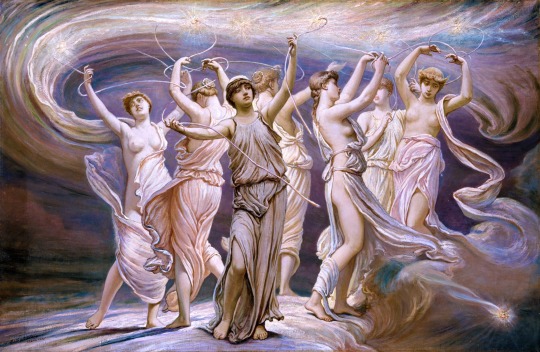
Elihu Vedder (1836–1923) “The Pleiades” (1885) Source (35MP)
9 notes
·
View notes
Photo
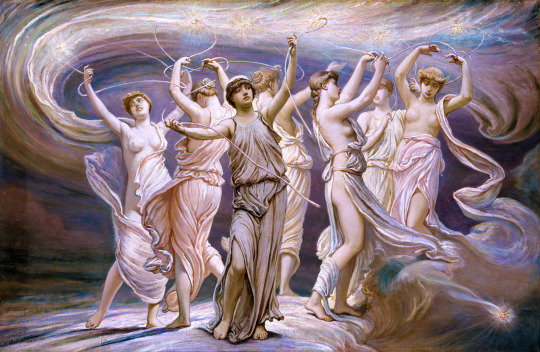
Elihu Vedder (American, 1836-1923)
The Pleiades, 1885
#Elihu Vedder#classical art#The Pleiades#The Pleiades 1885#1800s#19th century#pleiades#art#fine art#oil painting#traditional art#women#female portrait#female#females#beautiful art#classical#mediterranean#cradle of civilization
138 notes
·
View notes
Text
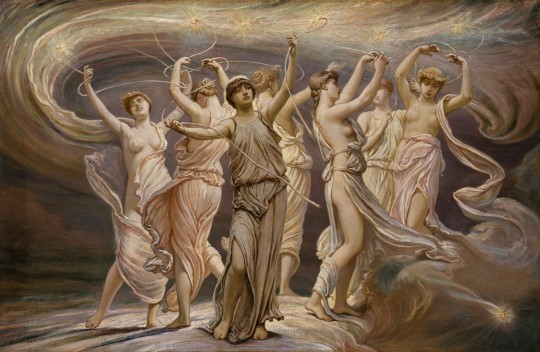
The Pleiades by Elihu Vedder, 1885
104 notes
·
View notes
Photo
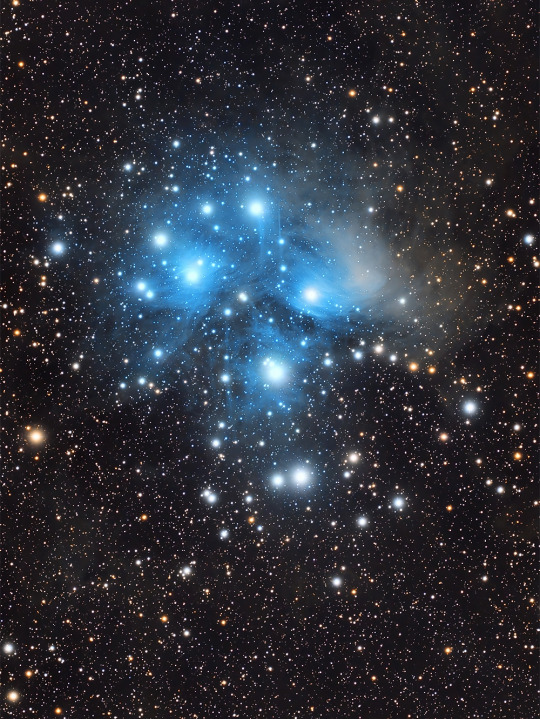
Seven Sisters: one of the night sky’s brightest clusters
#space#nasa#astrophotography#astronomy#stars#planet#star cluster#the pleiades#planets#galaxy#nebula#solar system#universe#night sky#cosmos
2K notes
·
View notes
Text
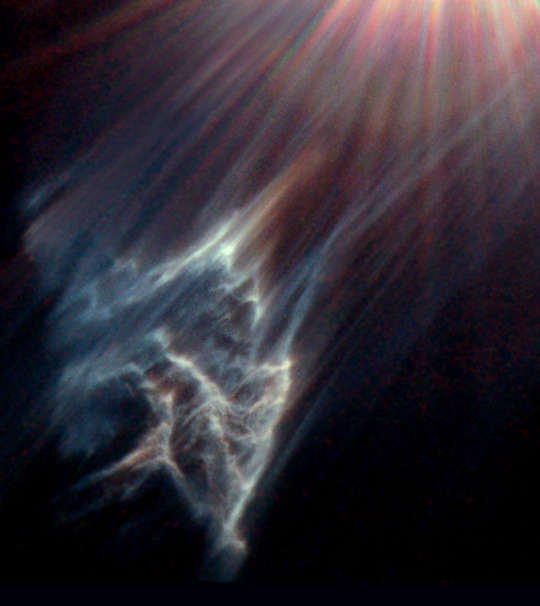
Ghostly Reflections in the Pleiades
ESA/Hubble
IMAGE: NASA
21 notes
·
View notes
Text

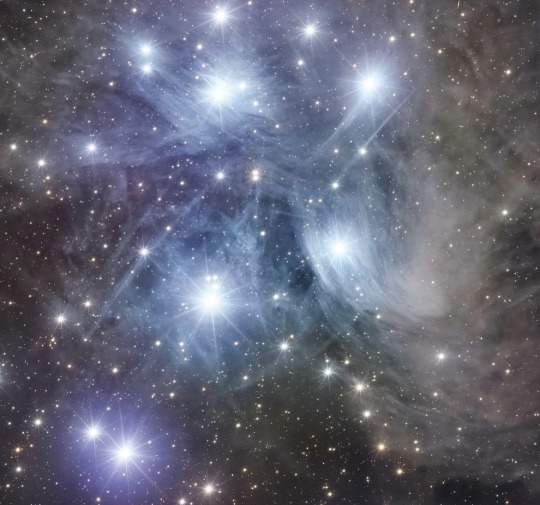
Messier 45: The Pleiades
Nick Fritz on Instagram
#hello I love the Pleiades#stars#astrophotography#space#astronomy#m45#messier 45#the pleiades#star cluster#mine#Pleiades
803 notes
·
View notes
Text
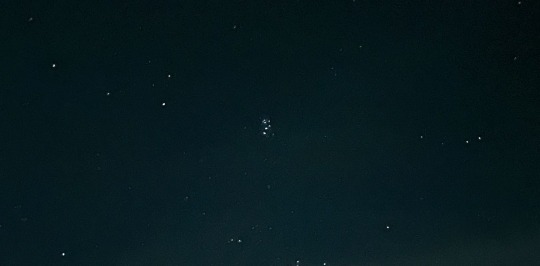
The Pleiades star cluster in the middle!!
#i didnt even realize untill now!!!#you can count the 7 stars too!!!!!#the pleiades#stars#astrophotography#starry night#night sky#sara's sky 🌥
9 notes
·
View notes
Text
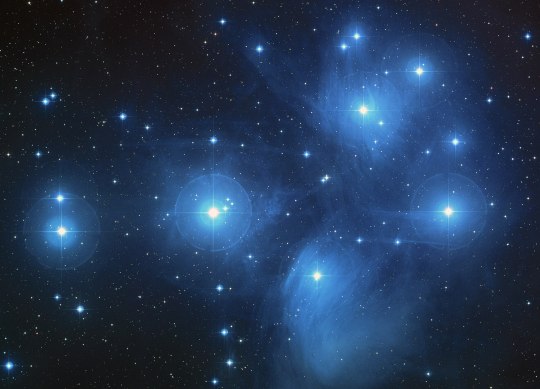
The Pleiades, an open cluster consisting of approximately 3,000 stars at a distance of 400 light-years (120 parsecs) from Earth in the constellation of Taurus. It is also known as ‘The Seven Sisters’, or the astronomical designations NGC 1432/35 and M45.
https://hubblesite.org
6 notes
·
View notes